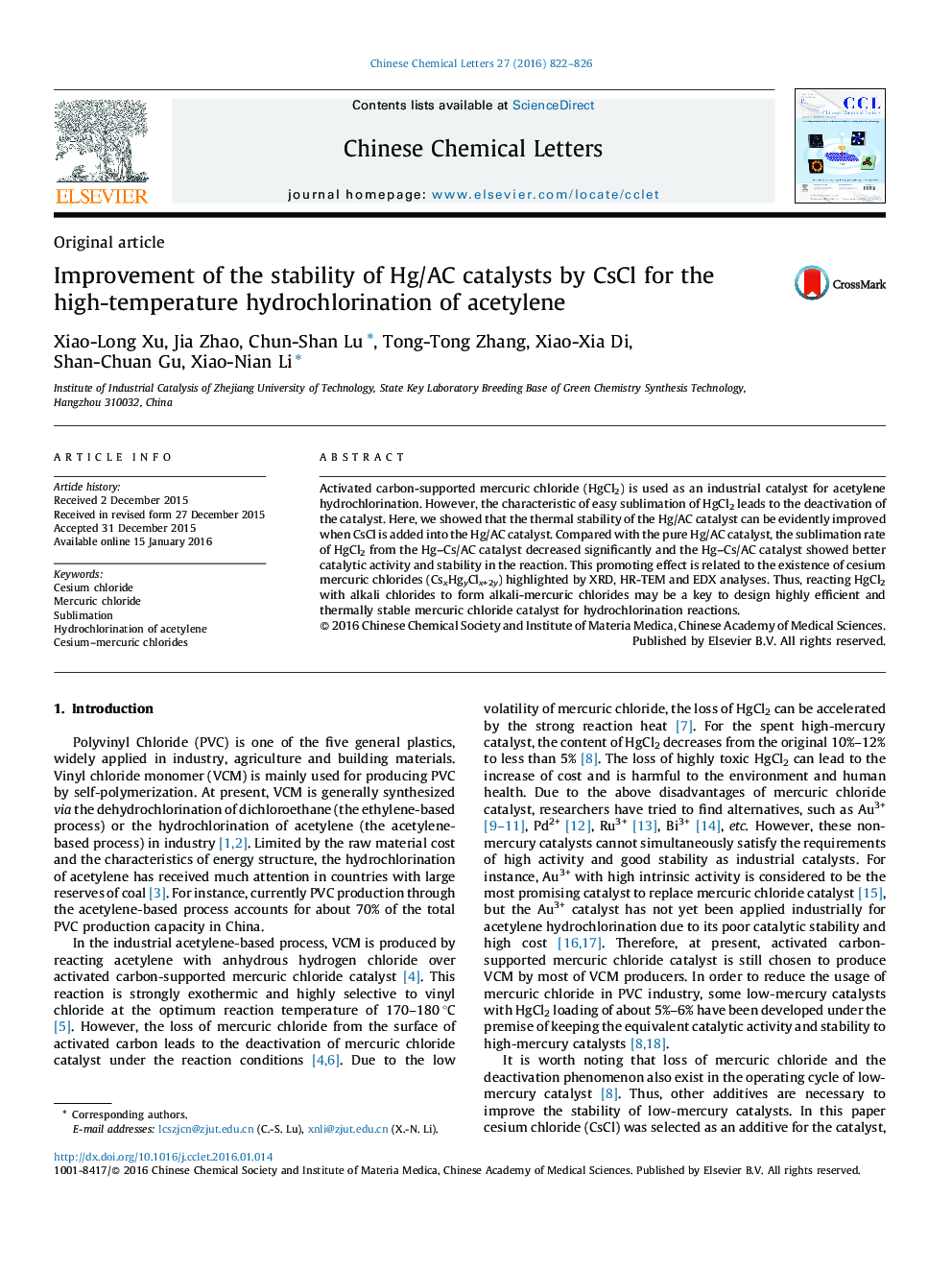| Article ID | Journal | Published Year | Pages | File Type |
|---|---|---|---|---|
| 1254284 | Chinese Chemical Letters | 2016 | 5 Pages |
Activated carbon-supported mercuric chloride (HgCl2) is used as an industrial catalyst for acetylene hydrochlorination. However, the characteristic of easy sublimation of HgCl2 leads to the deactivation of the catalyst. Here, we showed that the thermal stability of the Hg/AC catalyst can be evidently improved when CsCl is added into the Hg/AC catalyst. Compared with the pure Hg/AC catalyst, the sublimation rate of HgCl2 from the Hg–Cs/AC catalyst decreased significantly and the Hg–Cs/AC catalyst showed better catalytic activity and stability in the reaction. This promoting effect is related to the existence of cesium mercuric chlorides (CsxHgyClx+2y) highlighted by XRD, HR-TEM and EDX analyses. Thus, reacting HgCl2 with alkali chlorides to form alkali-mercuric chlorides may be a key to design highly efficient and thermally stable mercuric chloride catalyst for hydrochlorination reactions.
Graphical abstractCsCl can interact with HgCl2, forming a new compound, CsxHgyClx+2y. The addition of CsCl changes the existing form of the Hg atoms in the catalyst, resulting in the improvement of the thermal stability and catalytic efficiency of the mercuric chloride catalyst under reaction conditions.Figure optionsDownload full-size imageDownload as PowerPoint slide
